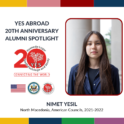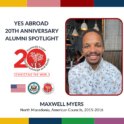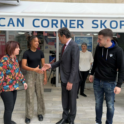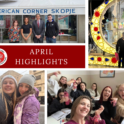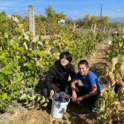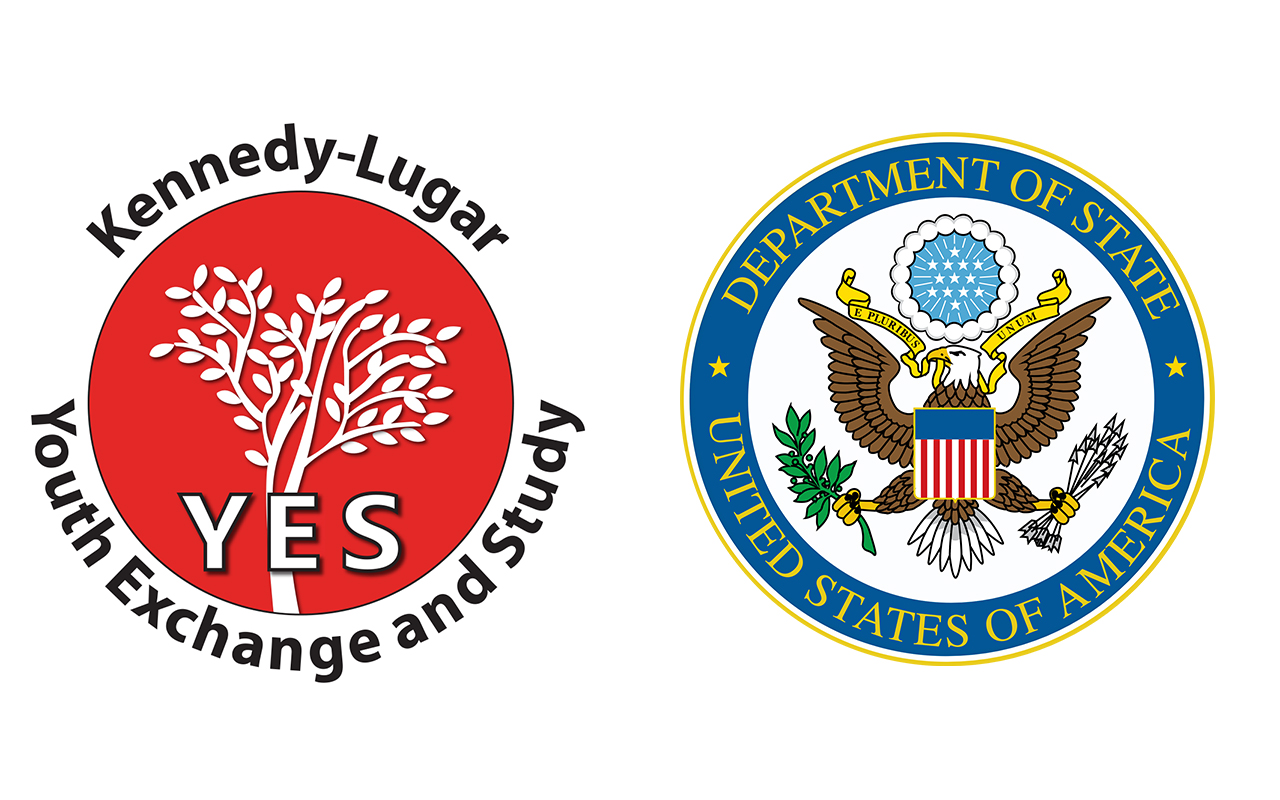North Macedonia
Study in North Macedonia with YES Abroad!
The Republic of North Macedonia is located in the central Balkan Peninsula in Southeast Europe. Bordered by Kosovo, Serbia, Bulgaria, Greece, and Albania, The Republic of North Macedonia is landlocked. With a central valley formed by the Vardar River and framed along its borders by mountain ranges, the terrain is mostly rugged. North Macedonia has a transitional climate from Mediterranean to continental with hot, dry summers and moderate winters.
YES Abroad students spend their program year in the country's capital of Skopje. With a population of over 500,000 people, Skopje is the country’s largest city and is the country's political, cultural, economic, and academic center. Skopje is an urban community, and while many host families own a car, the most common forms of transportation include buses, taxis, and walking. Participants may commute anywhere between 10 and 60 minutes each way by public transportation to their host schools or American Councils’ office.
North Macedonia is home to many ethnic groups including Macedonians, Albanians, Romani people, and smaller minority populations of Serbians, Turks, Bosniaks, and Aromanians. The two religions with the greatest influence on the country are Orthodox Christianity and Islam, but Catholicism, Protestantism, and Judaism are also practiced.
Learn more about being a YES Abroad student in North Macedonia:
Host Family
Students will live with host families in order to experience true immersion in the local culture. Families are selected based on recommendations by members of the local community, and each family is carefully screened by American Councils staff. Families are carefully vetted through a thorough application process and are highly regarded by their relatives and neighbors. Hosting communities exist through the presence of a strong support network, with a local staff member, or "local coordinator", available to each student hosted in the community.
Your High School
Participants are enrolled in private (non-gap year students) or public (gap year students) schools while in North Macedonia. The language of instruction at the private schools is English; the language of instruction at the public schools is Macedonian or a combination of Macedonian and English. School typically runs Monday to Friday from 8 a.m. to 4 p.m. for non-gap year participants; gap year participants at public schools tend to change between a first and second shift, with the first shift running from 7:30 a.m. to 1:15 p.m. and the second shift from 1:30 p.m. to 7:15 p.m.
Depending on host school, participants have the opportunity to participate in a number of extracurricular school activities, such as clubs and sports. Some students may also participate in the Creativity, Action and Service (CAS) program, if their school has an International Baccalaureate (IB) program, which provides opportunities for students to participate in other activities organized by the school. All participants, however, will have plenty of opportunities to seek out interesting activities outside of school.
The Political & Security Environment
The U.S. enjoys good relations with the Republic of North Macedonia. It is an active member in organizations such as the UN, WHO, ICC, ILO, and the Councils of Europe.
For more information, visit the CIA World Factbook.
Health & Safety
With a presence in North Macedonia since 2005, staff draw on strong local connections for a deep understanding of the area’s intercultural, health, safety, and security issues. Prior to departure and upon arrival, students attend a number of information and a safety briefings by American Councils staff and a security briefing by the U.S. Embassy’s Security Office, which will also provide participants with assistance in registering with the Embassy to receive travel alerts. American Councils works closely with participants before arrival and throughout the exchange year to prepare for and discuss participants’ well-being.
YES Abroad participants are covered by medical coverage as well as Political and Security Evacuation Insurance. Participants and their parents have access to a 24-hour emergency number, and staff members are thoroughly trained for any issues that might arise. Each student is given a mobile phone upon arrival as well as the contact number for their local coordinator in the American Councils North Macedonia office.
For further information on North Macedonia visit the U.S. Department of State website.
Enrichment Activities
Participants have the opportunity to take part in various activities to increase their interaction with locals and peers in North Macedonia. Activities may include field trips, sporting events, cultural excursions, social outings, and community service projects. Examples of previous enrichment activities include:
Meeting with the Public Affairs Section of the U.S. Embassy;
Exploring the capital city – Skopje;
Trips to other cities, towns, and sites in North Macedonia, such as Ohrid, Bitola, and Tetovo;
Cultural events with Macedonian YES Alumni who studied in the United States; and
Community service activities, such as volunteering with Habitat for Humanity and local non-profits.


